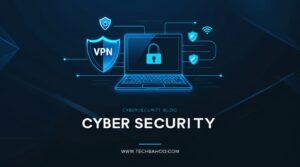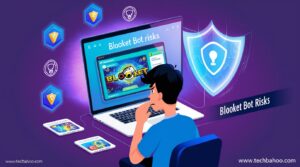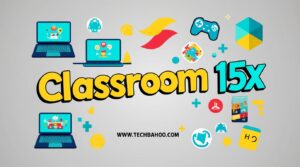Technological know how refers to Technological knowledge of how to use numerous technologies and having familiarity with improvements which are rising in our virtual world.
As devices and systems become more and more sophisticated, technological talents are more vital than ever before. In reality, recent studies from Burning Glass technologies shows simply how in call for these abilities have emerged as.
According to their findings, a superb sixty five% of all contemporary process postings require some level of virtual talents or proficiencies.
Permit’s take a more in depth examine a number of the precise technological skills which are most frequently requested via employers in step with the Burning Glass facts:
| Digital Skill | Percent of Postings Requiring Skill |
| Microsoft Office Suite (Word, Excel, PowerPoint) | 38% |
| Customer Service Skills | 34% |
| 29% | |
| Basic Computer Skills | 28% |
| Google Suite (Drive, Docs, Sheets, Slides) | 17% |
Having strong proficiency with ubiquitous programs like the Microsoft and Google office suites has become a basic qualification for many roles. But employers also desire a wider set of technological abilities that will allow their staff to adapt quickly as systems evolve.
How Gaining Technological Knowledge Can Improve Your Career and Existence:
Beyond just primary job responsibilities, businesses want well rounded employees who can take initiative to expand their skills over time.
Technologies are inherently changing industries and the nature of work at all levels. Those with an aptitude for continual learning will find themselves best positioned for new opportunities as the workplace undergoes rapid transformation.
A key way to strengthen your technological skills is through online courses available at low or no cost. Sites like Coursera, edX, and Udemy offer introductory classes on everything from programming languages to data analytics tools.
Taking one or two focused courses allows sampling different subject areas to discover your talents and interests.
For example, an Excel or Google Sheets class can expand analytical capabilities relevant to many fields. Programming options like Python are consistently in high demand according to job market data. Online certificates from CompTIA and similar providers also help validate skills on a resume in a way that appeals to hiring managers.
The Importance of Maintaining and Expanding Technological Knowledge:
The best approach is usually starting small with high impact skills before expanding horizons. Too broad a focus risks superficial knowledge across many areas versus true proficiency that comes from depth in a few technologies.
Maintaining Currency requires ongoing commitment once that initial skill develops.
Staying current proves essential as interface upgrade and whole new classes of tools disrupt the status quo. Keeping an experimental mindset open to new ideas sustains a growth attitude necessary for navigating continual change.
Strategies like following industry news, joining online forums, and internalizing new concepts through low risk hands on projects reinforce classroom knowledge.
Subscribing to technology company newsletters and browsing industry blogs delivers a steady stream of information exposing you to innovations worth deeper exploration.
Short online courses introduce basic functionality to estimate relevance and gauge interest in diving deeper. Familiarizing with emerging technologies proves wise even if you don’t immediately apply them, as transferring fundamental understanding becomes easier between generations of systems.
Of course, growing technological skills matters far beyond just career implications. In today’s digital first world, developing technology proficiency brings enormous benefits to daily life tasks and money management.
Online banking allows automatic payments that eliminate late fees, while budgeting apps prevent overspending different categories each month.
Travel sites surface better deals than walking into a travel agency, and video chat services keep far flung families connected affordably.
Basic familiarity with common devices and programs lifts the stress out of situations that previously felt intimidating or complex.
As new conveniences proliferate, having an adventurous mindset positions you to benefit from productivity boosting innovations.
Further, staying up to date prevents being left behind as tool sophistication marches ever forward at an unprecedented pace in human history.
Benefits of Technological Knowledge:
Cultivating a habit of lifelong technological learning offers wide ranging benefits that extend beyond just career implications. As technologies continue advancing rapidly, those who commit to ongoing skill building position themselves to take the most advantage of emerging opportunities.
Constantly expanding one’s knowledge also serves to enrich daily life and well being in meaningful ways.
Through continually studying new technologies, one remains engaged and mentally stimulated. This can help protect against age related cognitive decline and memory loss.
Regular technological learning also expands social circles, as it connects individuals to online forums and communities centered around shared interests.
Interacting with others passionate about technologies helps spread ideas while fostering collaboration and friendship.
Perhaps most importantly, ongoing skill acquisition imbues a growth mindset that maintains youthfulness regardless of age.
Those embracing change by taking on new skills exhibit flexible thinking shown to boost work performance, health, and happiness.
An eagerness to learn keeps one receptive to fresh perspectives instead of becoming set in ways. This attitude cultivates fulfillment through deriving purpose, excitement and challenge from ongoing refinement.
In short, committing to lifelong technological learning offers profound cognitive, social, and psychological benefits that enhance quality of life. Regular skill building establishes a flexible approach shown to future proof against uncertainty while optimizing well being.
FAQ
Q. What is technology as knowledge?
A. Organized knowledge for practical purposes.
Q. What is the meaning of technological knowledge in economics?
A. Society’s understanding about how the world works.
Q. What describes technology?
A. The application of scientific knowledge to the practical aims of human life.
Q. How does a country increase its technological knowledge?
A. Investment in physical capital.
Q. Which definition best describes productivity?
A. Output per unit of input.
Conclusion:
In summary, broadening your understanding of technology through a growth mindset represents a savvy strategy for empowering success now and far into an uncertain future.
Small steps lead to big rewards both personally and professionally as core concepts underpin waves of progress.
Those who view technological skills as an enduring process yield control amid constant upheaval by retaining capacity and eagerness to learn.
Make technological learning a routine part of your life by experimenting, asking questions without judgment, and committing to constant skill building for lifelong opportunity and well being.













